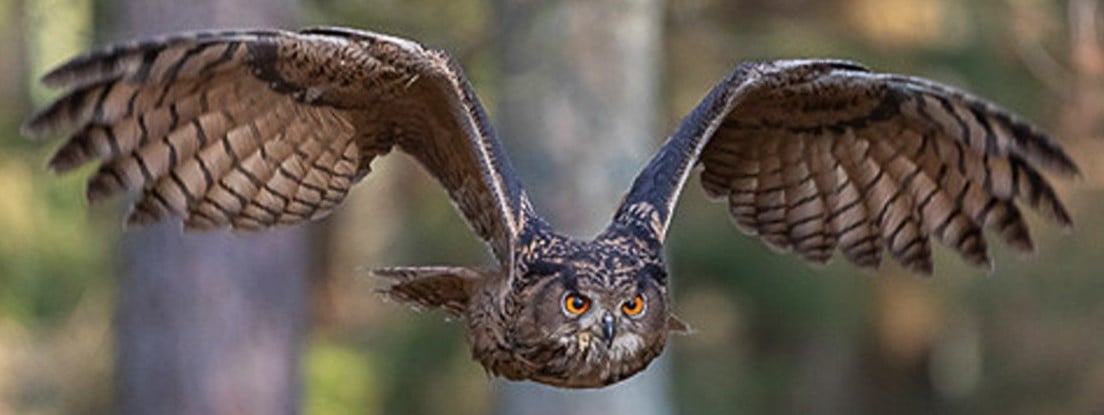Superbowl
For owls that are superb.

US Wild Animal Rescue Database: Animal Help Now
International Wildlife Rescues: RescueShelter.com
Australia Rescue Help: WIRES
Germany-Austria-Switzerland-Italy Wild Bird Rescue: wildvogelhilfe.org
If you find an injured owl:
Note your exact location so the owl can be released back where it came from. Contact a licensed wildlife rehabilitation specialist to get correct advice and immediate assistance.
Minimize stress for the owl. If you can catch it, toss a towel or sweater over it and get it in a cardboard box or pet carrier. It should have room to be comfortable but not so much it can panic and injure itself. If you can’t catch it, keep people and animals away until help can come.
Do not give food or water! If you feed them the wrong thing or give them water improperly, you can accidentally kill them. It can also cause problems if they require anesthesia once help arrives, complicating procedures and costing valuable time.
If it is a baby owl, and it looks safe and uninjured, leave it be. Time on the ground is part of their growing up. They can fly to some extent and climb trees. If animals or people are nearby, put it up on a branch so it’s safe. If it’s injured, follow the above advice.
For more detailed help, see the OwlPages Rescue page.
view the rest of the comments

Sorry, the wording they used is a bit confusing.
It doesn't help in this particular case is what they're trying to say, because since it was a hawk that grabbed this bird, they have no idea where the baby owl came from and can't return it to its parents.
If you were to find an owl like this, since it is too small to fly, if you are able to tell the rescue people "I found it under this tree here!" then they would probably be able to locate the original nest/parents and return the baby to them safely and so it has owl parents to raise it.
It's always best to return animals where they came from because they belong there and that is a place they were living successfully, and with babies, they learn to be proper wild animals if they're raised by their wild parents and can learn where to find food/water/shelter in that particular local ecosystem.
Oh, yeah, I see that now!